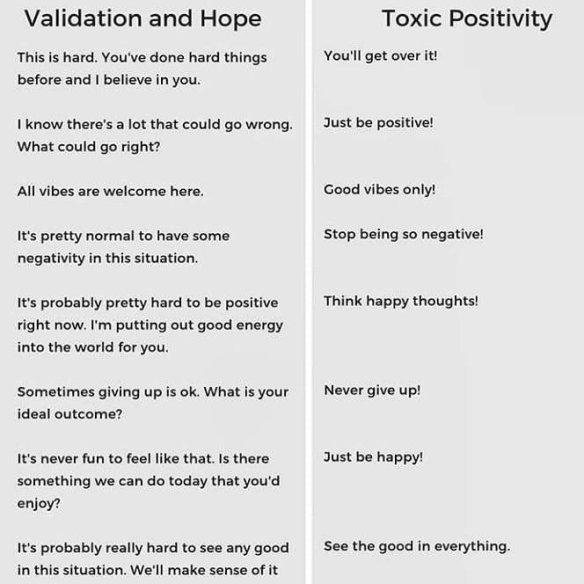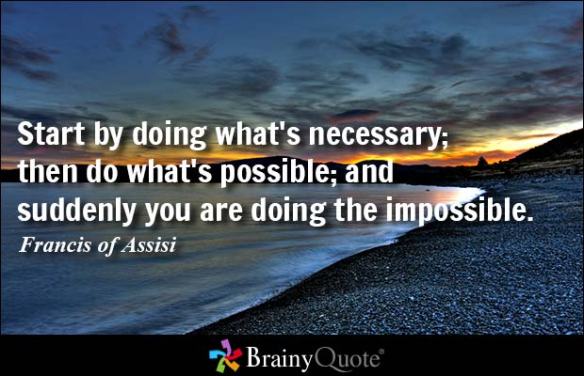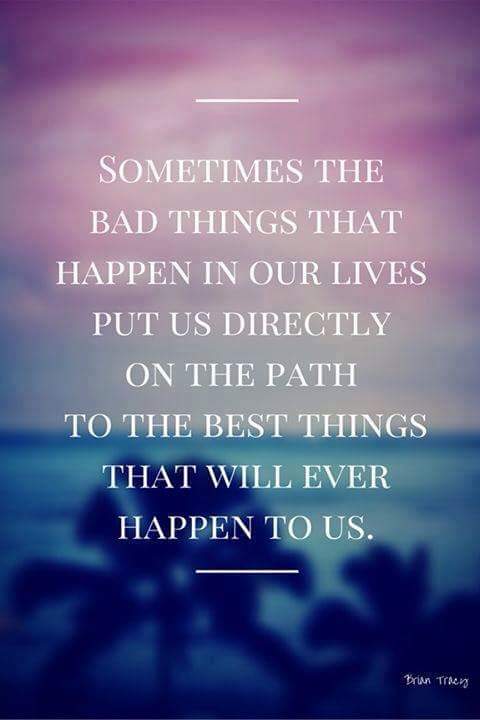Originally posted on July 10, 2016

I get tired of the positive thinking brigade who tells you you always must be happy and that there’s no place for “negative” emotions. Not only is it obnoxious to wear a pasted on smile all the time even when you’re not feeling it, it’s not natural or healthy. Of course, being a positive person who thinks positive thoughts is a good thing, but when it’s taken to ridiculous extremes (and it certainly is in my family, where “negative” emotions are not accepted or allowed) it can be soul-damaging. Following is a list of unpopular (or “useless”) emotions that definitely have their uses (when they’re not excessive). There are only two emotions I can think of that have no uses whatsoever, and I’ll describe those last.
1. Guilt.
My father always used to tell everyone that guilt was an unhealthy, useless emotion, but I couldn’t disagree more. True, excessive guilt is bad for you, but the right amount of guilt separates people with a conscience from the psychopaths. I pointed out this to my father once, and he became enraged. Hmmm, I wonder why! The ability to feel guilt keeps us civilized and mindful of the feelings of others.
2. Sadness.
Sadness is a normal reaction to a loss. It also connects people in those times of loss. We have socially sanctioned rituals that promote and even encourage the expression of sadness (funerals) but otherwise, people are uncomfortable with the sadness of another and are always trying to cheer you up. If you’re crying, people always want you to stop. Why? Feeling sad and crying can be healing; if sadness is repressed it can lead to something much worse–depression. People need to just shut up and let you be sad and cry if that’s what you need to do.
3. Anger.
There are times it’s appropriate to be angry. Anger, though toxic both to yourself and others when excessive, helps you survive. If you feel threatened or feel that someone close to you is threatened, you are going to fight back. The only other survival option is to flee (which I’ll talk about next). Otherwise you’re just going to stand there and let yourself or your loved ones get attacked or treated badly. Excessive anger, of course, leads to hatred, and hatred is not only useless, it’s dangerous to the soul.
4. Fear.
If you can’t fight (sometimes you can’t), you can flee danger. Like anger, fear is a survival emotion. It can be excessive, leading to anxiety disorders, but fear in normal doses is both healthy and appropriate reactions to danger. It’s important to distinguish whether it’s better to flee (fear) or to fight (anger).
5. Jealousy.
I’m not talking about envy here, an emotion often confused with jealousy. But they are not the same. Jealousy refers to the fear that someone is taking something you love away from you; envy refers to wanting what someone else has. There are similarities though. Both are bitter, painful emotions, hard to deal with. Sometimes they lead to people attacking the object of their jealousy or envy to “even the score.” But jealousy has its place. It’s another survival emotion, similar to anger mixed with fear, that warns you that something that belongs to you is in danger of being taken away. The problem is jealousy often crops up when there is no real danger of that happening, and that leads to all kinds of problems. Excessive jealousy can actually be self-defeating and drive what you love away from you — the most obvious example is constantly asking someone you’re in a relationship with if they are seeing someone else, or snooping in their things to find out. That sort of behavior will eventually drive the other person away.
6. Envy.
I hesitated to put envy here, because on the surface it really doesn’t seem to have any useful purpose. I almost put it as one of the “useless” emotions I’ll be describing last. But envy does have one useful aspect. If it’s not excessive, it can be a motivator, making you take action to improve your own circumstances. When it’s used that way, it’s really more akin to admiration than envy. The problem with envy is it can so often turn so bitter that it saps all your energy and lowers your self esteem, making you LESS likely to improve your circumstances or achieve the things you want.
The Two Emotions That Really Are Useless.

1. Worry.
I heard a great saying once: “Worry is useless because if what you dread comes to pass, then you’ve lived through it twice; if it never happens, then your worry was in vain.” I took those words to heart because of how true they are. Worry is absolutely useless. If faced with a potentially bad or dangerous situation, worry won’t help you. If something can be done to prevent the situation from happening, taking action will help, and once you take action, then there’s nothing more to worry about. If there’s no action you can take, then worrying about it is a waste of time. Better to plan how you will deal with it when it happens, than to sit around wringing your hands, pulling out your hair, and making yourself sick over it.
2. Shame.
Shame must be distinguished here from guilt. Guilt refers to something you did, while shame refers to the person you are. Guilt is useful because without it, there would be no apologies or amend-making for bad behavior. People would just go around doing whatever they want, regardless of how it makes others feel. Shame, on the other hand, is useless because it means feeling sorry not for something you did, but for who you are. If you were the family scapegoat, then you were the receptacle for all the family shame, and were made to feel like you’re worthless and don’t deserve to live. Shame is the one emotion that is at the core of all the personality disorders and every case of complex PTSD generated by familial abuse. It’s incredibly toxic–probably the most toxic emotion there is, and it has about as much usefulness as a bicycle does for a fish.
For more about shame vs. guilt, please read Carrie Musgrove’s article about the important distinctions.











 Inspired by Katie’s latest post on her blog, Dreams of a Better World:
Inspired by Katie’s latest post on her blog, Dreams of a Better World: